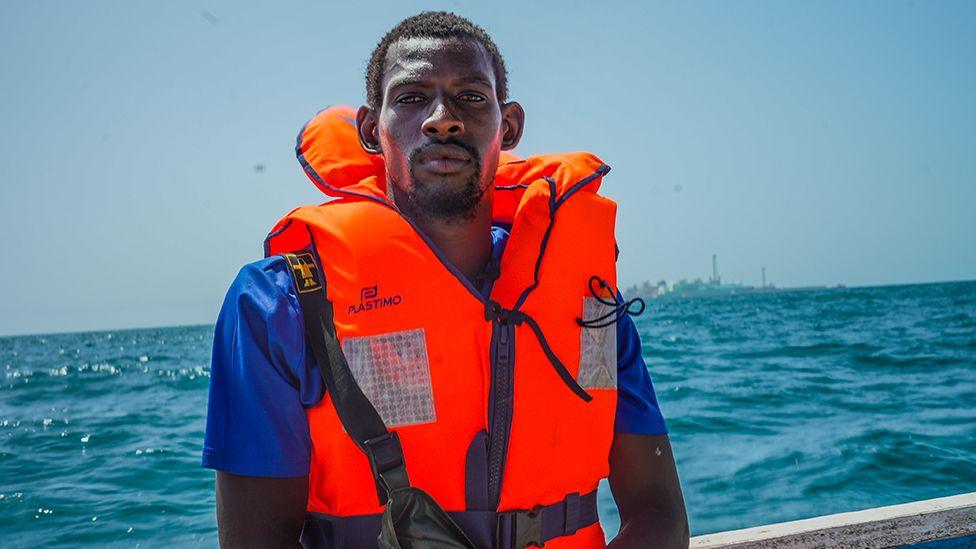Every day, Gora Fall, a fisherman in Senegal’s northern city of Saint-Louis, heads to sea with a mix of emotions: hope and frustration.
He hopes he will get a better catch than the previous day, yet he is frustrated by the thought that whatever he finds might not meet his needs.
“Before, we worked to live, but now we just work to survive,” says the 25-year-old.
Like him, many other small-scale, traditional fishermen in Saint-Louis – a major fishing hub – are facing hard times.
The BBC has spoken to several fishermen and people linked to the fishing trade who all point to one cause – a liquefied natural gas platform that sits on the maritime border between Senegal and Mauritania, off the coast of Saint-Louis.
The Greater Tortue Ahmeyim (GTA) gas project is operated by the British multinational oil and gas giant BP as part of a joint venture with Kosmos Energy, as well as Petrosen and SMH, the national oil companies of Senegal and Mauritania respectively.
BP, which has a 56% working interest in the project, began its operation in Senegal in 2017 after the discovery of natural gas two years earlier.
Described as one of the deepest and most complex gas development schemes in Africa, the first phase of the multi-billion dollar offshore project is expected to produce roughly 2.3 million tonnes of liquefied natural gas per year for over 20 years.
However, residents of Saint-Louis say this also comes with restrictions on fishing which 90% of the city’s population of over 250,000 rely on for a livelihood.
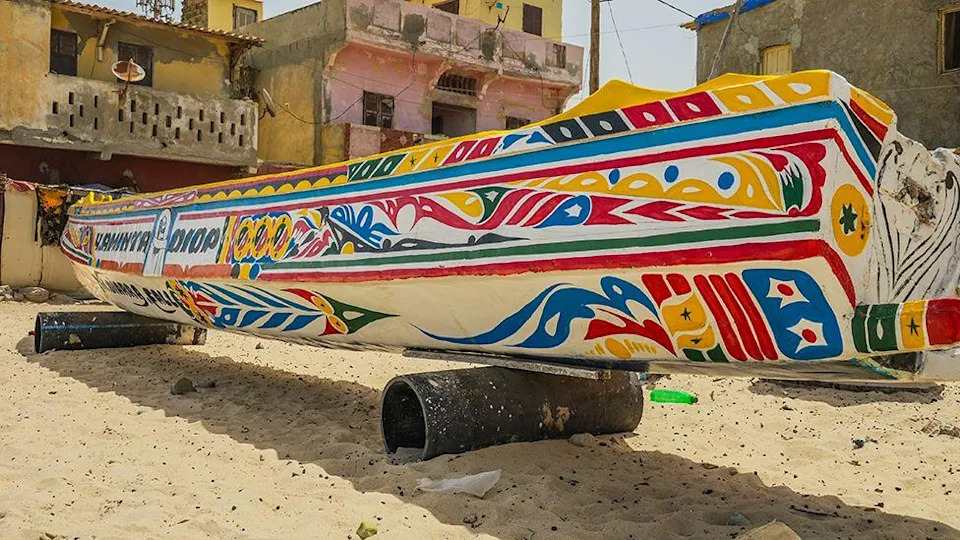
Senegal’s small-scale fishermen go to sea in these colourful canoes [Michel Mvondo / BBC]
On a Tuesday morning, with weather conditions declared favourable, Mr Fall readies his wooden canoe painted with patterns of red, blue, yellow and other colours.
With his hook and bait, he sets off for the day’s fishing trip.
After motoring 10km (6.2 miles) offshore, the young fisherman approaches the giant gas facility. But he says he cannot get any closer due to a 500m exclusion zone which restricts fishing.
“The authorities forbid us to fish in that area of the platform, under penalty of confiscation or even destruction of our fishing equipment if we access it,” Mr Fall tells the BBC.
Fishermen say the platform is built around a natural reef rich with fish – the restrictions mean their catches are smaller and they barely earn a living. This has compounded the difficulties they already faced with competition for fish from large international trawlers.
“We are very frustrated,” says Mr Fall.
“Now we can stay until 4pm twiddling our thumbs, without fish.”
BP says concerns about Senegalese fishing stocks pre-date the gas project, telling the BBC in a statement: “Safety zones around infrastructure are standard practice to protect people and assets.”
During a forum held in Saint-Louis in October 2024, Senegal’s Energy Minister Birame Souleye Diop expressed the need for oil and gas exploitation to co-exist with fishing, which he described as essential to the local community.
Fishing accounts for nearly 60,000 direct jobs and more than half-a-million indirect jobs in Senegal, according to the UN’s Food and Agricultural Organisation (FAO). It also reportedly employs one in six people and represents about 3% of the country’s GDP.
The majority of those working in the sector are small-scale, traditional, or “artisanal”, fishermen and processors.
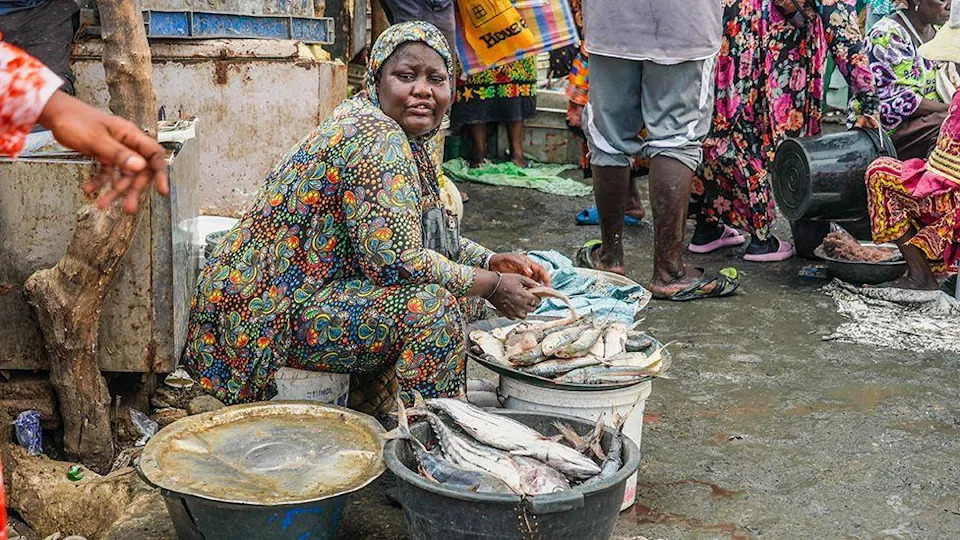
Women handle the catch brought to shore each day [Michel Mvondo / BBC]
Processing is traditionally predominantly done by women. But with the reduction in the number of fish in Saint-Louis, many are losing their jobs.
Diamol Sène, who dries salted fish in the sun, says some of the women who previously worked alongside her at a fish processing site are now unemployed.
“Fish has become too expensive, transport costs are high. Today, we earn just enough to cover expenses,” says the mother of 10.
“If the canoes could go out to sea and come back with [abundant] catches, all the women would return to the site to work,” she says.
Fishermen say they used to make between $445 and $625 (£330 and £465) from a single fishing trip, but nowadays, they struggle to get $90.
Dwindling profits are pushing many fishermen, including Mr Fall, to consider abandoning their centuries-old practice, which is seen as more of a tradition than a trade.
“We are forced to continue our fishing activity, because we have no other choice,” he says.
“But if a job opportunity arises, we will seize it without hesitation.”
Others have already abandoned fishing for alternative opportunities, including migrating to Europe.
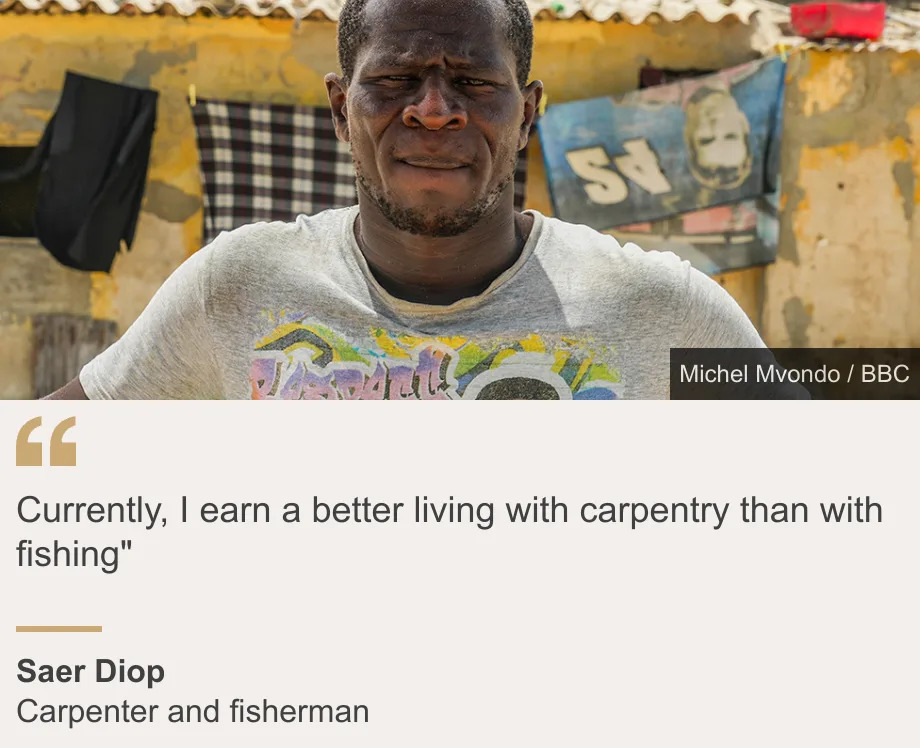
“Currently, I earn a better living with carpentry than with fishing””, Source: Saer Diop, Source description: Carpenter and fisherman, Image: A head and shoulders shot of a man in a grey T-shirt.
One of those no longer fishing is 38-year-old Saer Diop. Since 2021, the long-time fisherman has also been working as a carpenter – producing, repairing and painting canoes.
He developed the skill when he was much younger and now sees it as a lifeline in the face of adversity.
“Currently, I earn a better living with carpentry than with fishing,” he says.
While he admits the work as a carpenter is not regular, he feels fishing has become “very difficult” because of the gas project.
BP insists it is “committed to operating responsibly” alongside its partners and local communities.
While celebrating the launch of gas exports from the facility in April 2025, the energy minister called for “continuous vigilance to guarantee the efficiency, transparency and sustainability of economic benefits for the population”.
The government also hailed the gas project as one that strengthens the country’s positioning on the global energy scene, earning vital foreign exchange.
Members of a local association representing artisanal fishermen in Saint-Louis say BP has not fulfilled its promise to create artificial reefs where they could catch more fish.
These reefs were meant to serve as an alternative, given that access to the natural reef – known locally as Diattara – is restricted.
“When they came in 2019, they told people: ‘We’re going to build you eight artificial reefs’ to at least replace our Diattara,” says Nalla Diop, the spokesperson of the fishermen’s association.
However, he says that six years on “nothing has been done”.
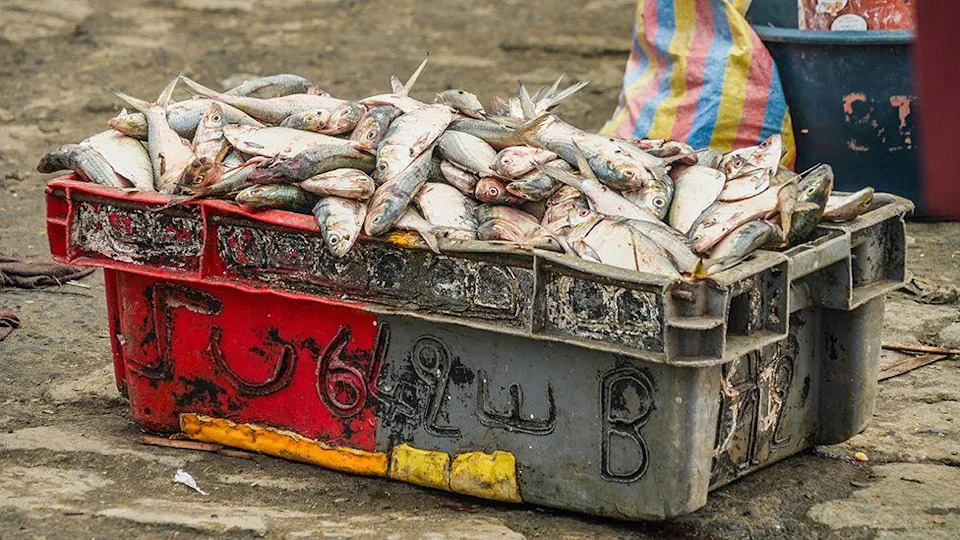
The fishermen say their catch has gone down since the gas project began [Michel Mvondo / BBC]
The BBC obtained documents from a study conducted by Senegal’s Oceanographic Research Centre of Dakar-Thiaroye (CRODT), showing 12 potential sites were initially explored to host the artificial reefs. Out of these, six were identified as viable.
Dr Modou Thiaw, a senior researcher at CRODT who was among those who led the study, says only two of the sites were later identified and proposed to BP.
He describes the process of delivering an artificial reef as “super slow”.
In a statement, BP says between 2021 and 2023, feasibility studies and further evaluation revealed that only two of the 12 reef sites were “assessed as being feasible for a reef of a substantial size to be deployed without risk of submergence or scouring”.
“One of those sites was within the Marine Protected Area (MPA) of Saint-Louis and therefore was not put forward, given it would not provide immediate benefits to Saint-Louis fisherfolk,” the statement adds.
BP says the one site that was chosen will host a substantial reef complex that will include 10 reef clusters within it.
“Work is already under way, and the reef is expected to be completed by the end of 2025,” BP says.
The company says an environmental and social impact assessment approved in 2018 concluded that the loss of potential fishing grounds in Mauritania and Senegal as a result of the gas project would be “negligible”.
Amid the back and forth about the feasibility of artificial reefs, another point of discord is the location.
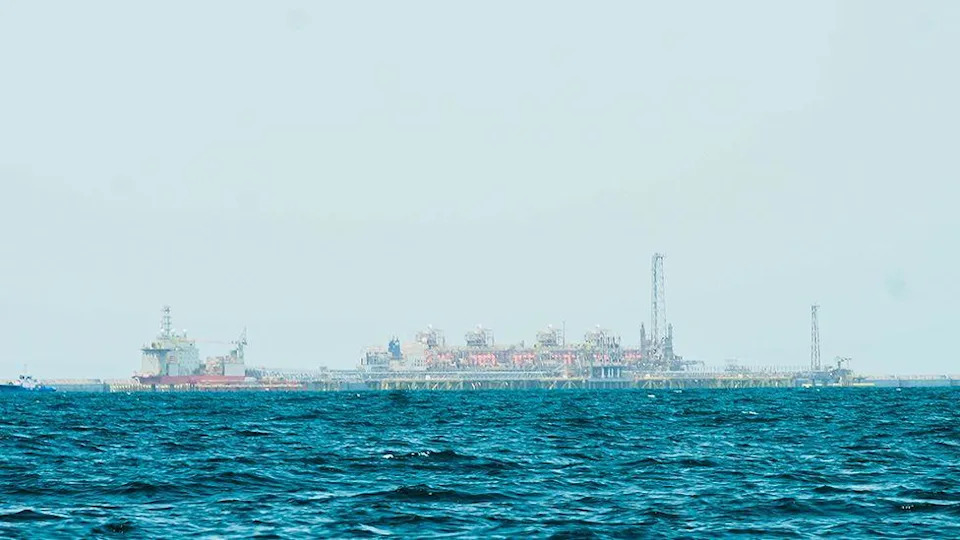
The gas platform sits about 10km from St-Louis’s coast [Michel Mvondo / BBC]
Fishermen say BP plans to build the artificial reef just 4km from the coastline, describing the position as unfavourable to attract fish.
However, BP says a technical evaluation concluded that a “cluster” of “reef pyramids” in that location allows more effective management and protection of that reef.
The Senegalese government said there had been a gas leak in February 2025 – described by BP as “gas bubbles” – in one of the wells run by the oil-and-gas giant.
The incident raised concerns about the safety of marine life around the facility.
Mamadou Ba, a Dakar-based ocean campaigner with Greenpeace Africa, says gas leaks could have “immeasurable effects” on the environment.
“BP refuses to disclose the actual amount of the gas leak,” Mr Ba says.
He says experts found that such a gas leak had the potential to destroy marine fauna and flora, reefs, algae and resources that allow fish to feed.
However, repeating the word used in the assessment of the loss of fishing grounds, BP told the BBC that the environmental impact was assessed as “negligible”.
“We acted swiftly, capped the well, and engaged transparently with regulators,” the multinational says.
In a joint statement on 14 March, Senegal’s environment and energy ministries said tests and observations carried out revealed there were no further leaks after BP repaired the well.
“Satellite images, taken after the intervention, did not reveal the presence of bubbles or condensate on the surface of the water,” the statement says, while expressing the commitment of both Senegalese and Mauritanian authorities to ensure continuous improvement in the management of the gas project’s activities “in order to minimise the occurrence of such incidents in the future”.
But the leak has added to local concerns about the impact of the gas site.
Representatives of the artisanal fishermen in Saint-Louis say the promise of economic prosperity through the project comes at a great cost.
They say it deprives them of free access to their much-cherished sea, leaving them with an uncertain future.
They also accuse the government of siding with BP to their detriment.
“We only have the sea to live on,” says Mr Fall.
The Senegalese government did not respond to the BBC’s request for comment.
Additional reporting by Michel Mvondo
You may also be interested in:

[Getty Images/BBC]
Go to BBCAfrica.com for more news from the African continent.
Follow us on Twitter @BBCAfrica, on Facebook at BBC Africa or on Instagram at bbcafrica
BBC Africa podcasts
